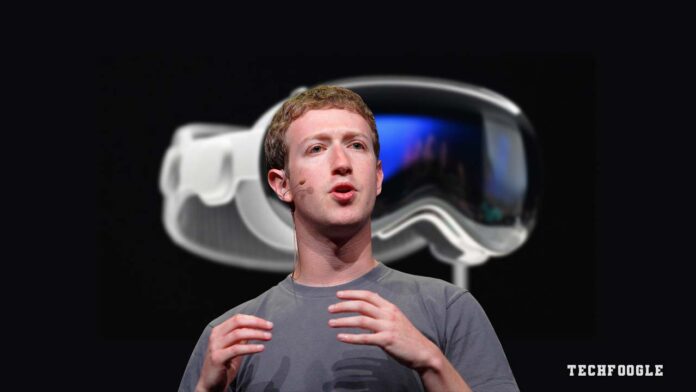Earlier this month, the tech world witnessed the highly anticipated Apple Vision Pro launch, causing a stir across the internet. Priced at a hefty $3,499, consumers immediately began exploring alternative options in the market. In a surprising move to endorse one of its major competitors, Meta (formerly Facebook) CEO Mark Zuckerberg took to Instagram to share his experience with the Vision Pro, comparing it to Meta Quest 3, and his insights were rather intriguing.
In a brief Instagram video, seemingly captured through Meta Quest 3’s passthrough feature, Zuckerberg expressed his initial skepticism, admitting that he believed the Quest 3 offered better value for most users, given its significantly lower price point of $500 compared to the Vision Pro’s premium price tag. However, after testing the Vision Pro, Zuckerberg declared it provides better value and deemed it “the better product, period.”
He proceeded to showcase the capabilities of the Quest 3, particularly highlighting its high-resolution mixed reality through technology, evident in the video as browser windows and tabs briefly appear. Zuckerberg emphasized the Quest 3’s lightweight design (515 grams), making it more versatile in various scenarios than the Vision Pro, which weighs 600-650 grams and requires a heavy external battery pack.
(Also see: Vision Pro Passcode Recovery: Challenges and Solutions)
Furthermore, Zuckerberg praised the Quest 3’s extensive app library, which includes a wide range of VR games and productivity applications. While acknowledging the Vision Pro’s superior micro-OLED display for entertainment, he noted that the Quest 3 boasts brighter screens.
Additionally, Zuckerberg commended the Quest 3’s hand-tracking accuracy and preferred its physical controllers. He hinted at the potential reintroduction of eye tracking, previously featured in the Quest Pro, as a logical progression for the product.
In discussing the open and closed models, Zuckerberg drew parallels with Microsoft’s PC era, favoring an open ecosystem akin to Meta’s vision for VR headsets. He hoped for Meta’s available model to succeed in VR, challenging the dominance of closed ecosystems like Apple’s.
While Zuckerberg acknowledged the Quest’s existing content library advantage, he speculated on Apple’s potential to refine their VR offerings in the future, posing a competitive threat to Meta and other industry leaders.
In conclusion, comparing the Apple Vision Pro and Meta Quest 3 offers valuable insights into the evolving landscape of VR technology. Zuckerberg’s assessment highlights the strengths and weaknesses of each product while also hinting at the direction Meta aims to take in fostering an open and innovative VR ecosystem.
Conclusion
The comparison between the Apple Vision Pro and Meta Quest 3 underscores the dynamic nature of VR technology. Zuckerberg’s endorsement of the Quest 3 over the Vision Pro provides valuable insights into the strengths and weaknesses of each product while also hinting at future developments in the VR space. As the industry evolves, competition among major players drives innovation and ultimately benefits consumers.













